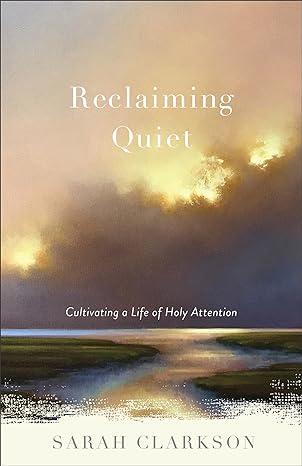More on this book
Community
Kindle Notes & Highlights
Read between
December 29, 2024 - January 18, 2025
They followed him because he fed them a bit of bread, and they wanted that physical feeding guaranteed—not because it was a sacrament, not because they glimpsed the divine generosity, the mercy and grace, made tangible in that feast. Don’t work for a few bites of fish and bread, he said. Do the works of God in order to earn the sort of food that gives you eternal life.
Assent at its best bears the idea of willingness as gift. It’s something that can only be given.
I assent to finding God in the very places I least expected him, no longer demanding he show up in my life as lightning and thunder to remove me from all my little obligations and make me great. Rather I find him in the pith of those tiny things, at the heart of my need and the needs of all those I serve.
I have come to believe that the gift and work of quiet is not to be found in the reaching of great feats but the keeping of small faithfulnesses.
either everything matters or it doesn’t. Either those tiny things on the window are a portent revealing the care God gives to all little things—to flowers in the field and finches in the blackened winter branches and little, grumpy children and weary, lonelyhearted women who find it hard not to feel forgotten—or they aren’t.
in writing my poem I was as much a witness as a wordsmith.
Quiet led me to a space of creation.
Imagination asks of us a quiet space where we may attend to all that sings to us from outside the walls of time, from the deathless world in which our hearts seek roots.
But when I returned recently to Lewis’s essay, I realized that the function of a phone is always to set one outside of an experience. If Joy is something we know from the inside of laughter and affection, if it is something we can only know in a taste-and-see way, an immersive encounter, then the act of stepping outside those experiences in order to record them is a move from Enjoyment to Contemplation.
Our imaginations are formed by what we feed them, and if the scream of the online world is what we feed ourselves and our children, then our inner rooms will become echo chambers for all the voices that threaten to destroy us.
We need to attend in the inmost place of our hearts, where God speaks. We need to listen and live from the inside.
In quiet, we learn to watch and wait for God’s help as it sets up camp in the very heart of our darkness.
Why is the stark honesty of lament one of the gifts of quiet? Because it teaches us that the darkness is not our end.


